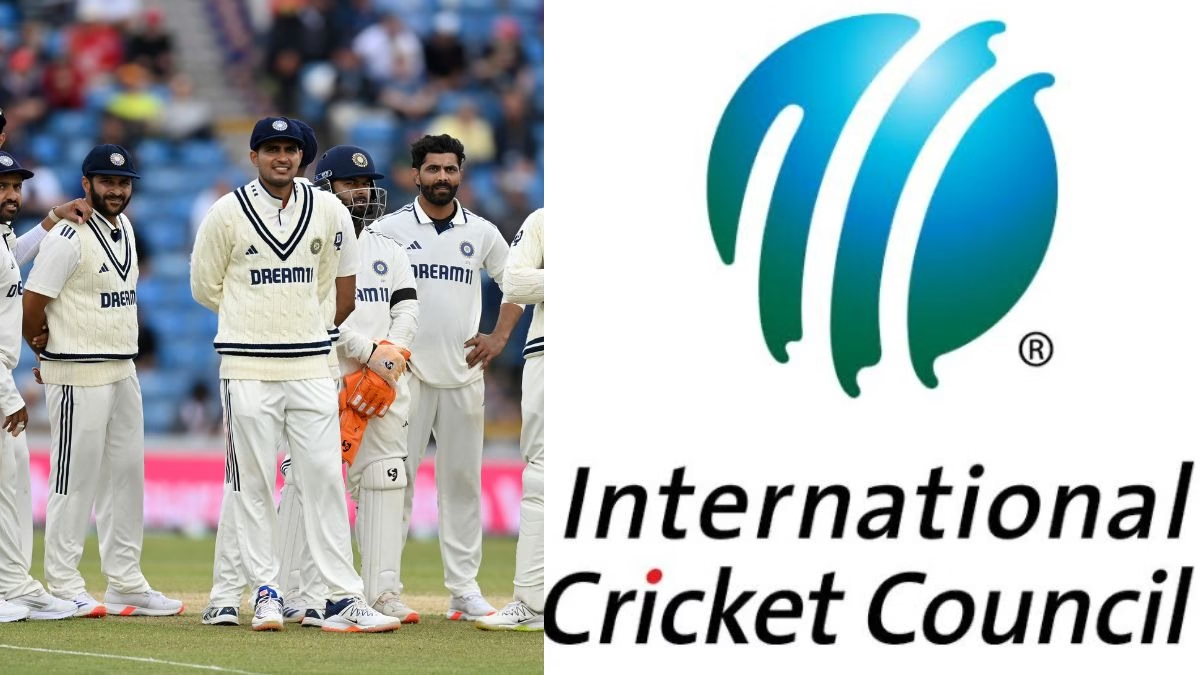The International Cricket Council (ICC) has announced a series of significant rule changes across all formats of men’s international cricket — Tests, ODIs, and T20Is — aimed at improving game flow, fairness, and clarity.
Among the most prominent updates are the formal implementation of the stop clock in Test matches, a revised Decision Review System (DRS) protocol, and stricter action against deliberate short runs.
Stop Clock Now in Tests
Originally trialed in limited-overs cricket, the stop clock will now also be used in Test matches to combat slow over rates. Fielding sides will have 60 seconds to begin a new over once the previous one ends.
Umpires can issue two warnings before penalizing the fielding team with five penalty runs for each additional delay. The countdown timer will be clearly displayed, and warnings will reset every 80 overs. The rule is already in effect in the ongoing World Test Championship cycle.
Saliva Rule Adjusted
While the use of saliva on the ball remains banned, umpires are no longer required to replace the ball if it is accidentally applied.
Instead, officials will evaluate whether the ball’s condition has significantly changed. If the ball behaves unusually but wasn’t materially altered by saliva, the batting side will be awarded five penalty runs, though the ball will not be replaced. This discourages teams from intentionally applying saliva to force a ball change.
Decision Review System (DRS) Changes
The DRS process has also been refined for greater consistency:
- If a batter is given out caught and a review finds no edge, but lbw tracking shows umpire’s call, the batter will remain out, as the original decision was “out.”
- In cases with multiple appeals (e.g., lbw and run-out), the review sequence will follow the actual order of events, rather than giving priority to umpire reviews.
- If the first event results in a dismissal, the ball is considered dead, and any subsequent event (like a run-out or second appeal) won’t be reviewed.
- In situations where a no-ball is called during a catch, the legality of the catch will still be reviewed. If the catch is clean, the batting team receives only the no-ball run; if not, they receive all completed runs.
Stronger Penalties for Deliberate Short Runs
To prevent manipulation of runs, the ICC has introduced stricter rules for deliberate short runs.
In addition to a five-run penalty, the fielding captain can now choose which batter stays on strike.
According to Law 18.5.1, a deliberate short run occurs when a batter intentionally fails to make their ground while attempting to give the impression that a valid run has been completed. Aborted runs are only permissible if the umpire believes there was no intent to deceive.
Trial of Full-Time Injury Replacements
The ICC has also encouraged member boards to trial full-time replacements for injuries caused by external forces in domestic first-class cricket.
The substitute must be like-for-like, similar to the current concussion substitute policy. However, soft tissue injuries like pulled muscles do not qualify. All injuries must be visible and verified by match officials, and this change is currently limited to trial stages.



